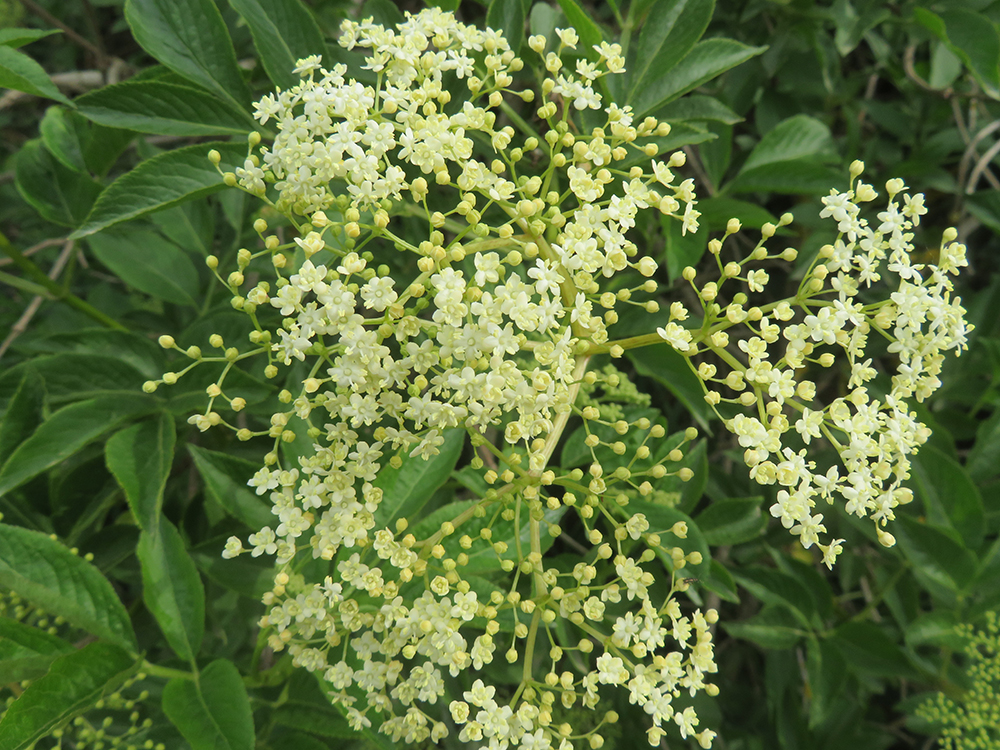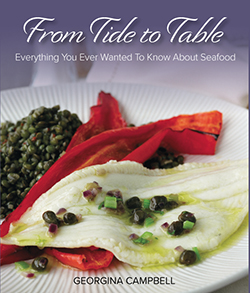An Irish Chef in France
Martin and Sile Dwyer’s Chambre d’Hôte in the Languedoc has been closed by Covid for months on end and is likely to remain closed for the 2021 season. But they're enjoying the summer coming in - and, with elderflower cordial in the making, Martin reflects on how the French and the Irish tend to respond to the foreswearing of alcohol ...

It will be five years next September when my GP here in France, looked at the results of my latest blood test and advised me, gently, that she thought that perhaps I would be better off if I gave up alcohol.
I had been toying with this notion for a while myself so it didn’t come as a total shock. Wine is so freely available, such excellent quality, and so reasonably priced here in France that I was finding it easier and easier to open the second bottle as I ate with my guests in the evening.
The reaction of my Irish friends was, I could see, to a man, to start adding up their own consumption and wonder should they do the same. The reaction of my French friends, also to a man, was that I should change my doctor.
To my surprise I found the foreswearing of alcohol quite easy and that the health benefits were quickly evident.( After my first alcohol free year my GP took me off my diabetes treatment telling me it was no longer needed.)
In fact my major battle with giving up the demon drink wasn’t so much my abstinence from alcohol as to what I was going to use as a substitute.
It won’t surprise you to learn I am sure that here in France that most social life circles around drinking alcohol. Even though the French, in my experience, don’t drink as much as we do in Ireland - nights in the pub don’t happen here - they do manage to down a fair amount of the hard stuff during the day. It is not at all unknown for them to have a glass or two of wine with lunch and the sacred hour of Aperitif, before dinner is always duly observed.
I am not a herbal tea person and soon found that this brew ( known as horrible tea chez moi) was being frequently offered to me. Most of the canon of “soft” drinks are incredibly sweet and to have more than one offends even my sweet tooth.
It was with some relief that I discovered non-alcoholic beer. This gave a fairly rough approximation of lager, was not overly sweet and didn’t proclaim to the world that Dwyer was off the drink. The obvious progression from that was towards alcohol free wine but, unfortunately, so far I have discovered that when you remove alcohol from wine you are left with a very different drink.
A couple of months ago I moaned on my face-book page about my difficulty of replacing wine in my life and I received a lot of helpful suggestions. When I sifted through these I did notice a certain thread, a lot of people were replacing wine with some concoction or other of Elderflower. It seems that the musky sweetness of this shrub acted as a possible wine substitute.
As luck would have it these advices happened just as the elder came into flower here in Languedoc so, armed with plastic bags, we headed off to gather elderflower for a cordial.
I am reasonably pleased with the end product. The resulting cordial is perhaps a little sweet - but that can be remedied - and is very good when diluted with sparkling water. My guess is that for you out there who are still drinking alcohol that mixed with a sparkling wine of your choice it would also slip down easily.
Here is the recipe.

20 heads of elder flowers
1 ltr water
400g caster sugar
150 g honey
2 organic lemons
Bring the water to the boil with the sugar and honey and simmer until all the sugar has dissolved.
Grate the zest from the lemons (no pith) and then add this, with the juice of the lemons and the sliced lemons, along with the elderflowers to the hot syrup. Cover this and leave overnight to infuse. Sieve this through a cloth and bottle. It will keep bottled in a fridge for a week or two and will last much longer if you freeze it.
Martin Dwyer started cooking professionally over 40 years ago in the legendary “Snaffles Restaurant” in Dublin. After a time in a Relais Chateau in Anjou and in “The Wife of Bath” in Kent, he opened his own acclaimed restaurant, “Dwyers”, in Waterford in 1989. In 2004 he sold this and moved south to France where he and his wife Síle bought and restored an old presbytery in a village in the Languedoc. They now run Le Presbytère as a French style Chambre d’Hôte. Martin however is far too passionate about food to give up cooking so they now enjoy serving dinner to their customers on the terrace of Le Presbytère on warm summer evenings. Martin runs occasional cookery courses in Le Presbytère and Síle’s brother Colm does week long Nature Strolls discovering the Flora and Fauna of the Languedoc.
Le Presbytère can be seen at: www.lepresbytere.net;
email: martin@lepresbytere.net.






There are currently no comments
Leave a comment
Not a member? Register for your free membership now!
Or leave a comment by logging in with: